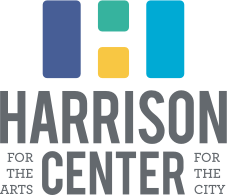The Cultural Entrepreneur Internship Experience
I am finishing the last couple weeks of summer entirely satisfied with the tasks I have accomplished and the knowledge I’ve gained from the past few months. To decipher how this summer managed to be so rewarding, I have looked to my education at IUPUI that prepared me, the individuals who have coached me, and one particularly exceptional framework.
FoodCon V vendors and attendees
I interned with the Harrison Center for the Arts this summer and my work consisted of planning an event called FoodCon over a time span of seven months. The overall purpose of FoodCon is to engage the Indiana sustainable food community and general public with the fun, new, and innovative things they can do with food. This purpose was accomplished through a tent full of vendors interacting with attendees, local food trucks providing cuisine, and many other aspects. Planning the event was a learning process, but the key skills behind my success with the event are a product of my education from the Kelley School of Business. For example, contacting countless external parties required people skills, grace, and attention to detail. As a human resources and management dual major, I felt prepared to speak to everyone involved with the event. Cold calling individuals and remaining persistent when vendors were difficult to find or unable to attend, required all of these skills. Much of the work I did also necessitated a lot of planning ahead and anticipating duties early and often. My education and professors absolutely prepared me for all professional encounters and responsibilities I had with HCA this summer, and I can take pride in my work as a result.
One of the biggest take-a-ways from my internship with HCA is the Cultural Entrepreneurship framework they wish to embody and encourage interns to reflect as well. The framework states Cultural Entrepreneurs accomplished the following five steps:
- See a need
- Take a risk
- Leverage resources
- Invest energy
- Network to build culture in the city
I find this framework applicable to numerous situations in school, work, and professional development. Following these steps is a great way to break down any project you are working toward to ensure you participate as a cultural entrepreneur in Indianapolis or elsewhere.
Weekly gathering of cultural entrepreneur interns at the Harrison Center
Are you a cultural entrepreneur and why should you be one? The answer is in each step. Naming a need in the community is the first step to improving life in Indy. Cultural entrepreneurs recognize a need and take risks to fulfill its requirements. Taking risks is essential for growth as individuals and as a city. Risk taking will ensure development for both parties. Next, cultural entrepreneurs leverage resources. It is extraordinary how many resources are available among any group of people. Leveraging resources puts human capital and assets to work in our city. Of course, fulfilling the need you identify will require an investment of energy. Commit to your plan and reap the rewards! Great cities are a product of its members and we are all capable of being Indy’s best cultural entrepreneurs. Finally, network to build culture in the city. I personally view this step as directly connected to leveraging resources. When I seek resources to accomplish a task, I involve other parties. This allows others to have a hand in whatever is being accomplished, and is good use of my personal network. By accessing and expanding my network, that many more individuals are engaging in their community-thus building culture!
The first time I intentionally applied this framework occurred as I planned FoodCon. The need of FoodCon is to showcase the countless ways in which Indiana residents can access and create food in new forms. Planning FoodCon included several risks as well: potentially failing to secure enough vendors, missing a step in planning the event, or not creating the fifth annual event that was successful or comparable to past years. The third step of cultural entrepreneurship was met by leveraging my resources at HCA by asking staff about previous FoodCon events. I worked closely with HCA staff Emily Vanest, Pam Allee, and Joanna Taft to make sure I planned all parts of the event and didn’t overlook any details. Investing energy was essential of course, too! I began small steps in January 2014 and the work picked up in May 2015 until FoodCon V occurred July 3, 2015. Finally, I believe FoodCon served as the perfect situation for individuals to network and build culture in the city. For example, attendees interacted with local business owners and people who are innovative with food production, consumption, and disposal. FoodCon sparked many conversations to expand all attendees’ knowledge and network to inspire rich culture in our city.
This is only one small example of being a cultural entrepreneur in our city of Indianapolis. Cultural entrepreneurship can take many forms and be successful through many endeavors. I believe the framework is easy to comprehend and applicable in any location or setting. I personally will utilize the framework as I continue my education with the Indianapolis Kelley School of Business and as I advance to a career.


